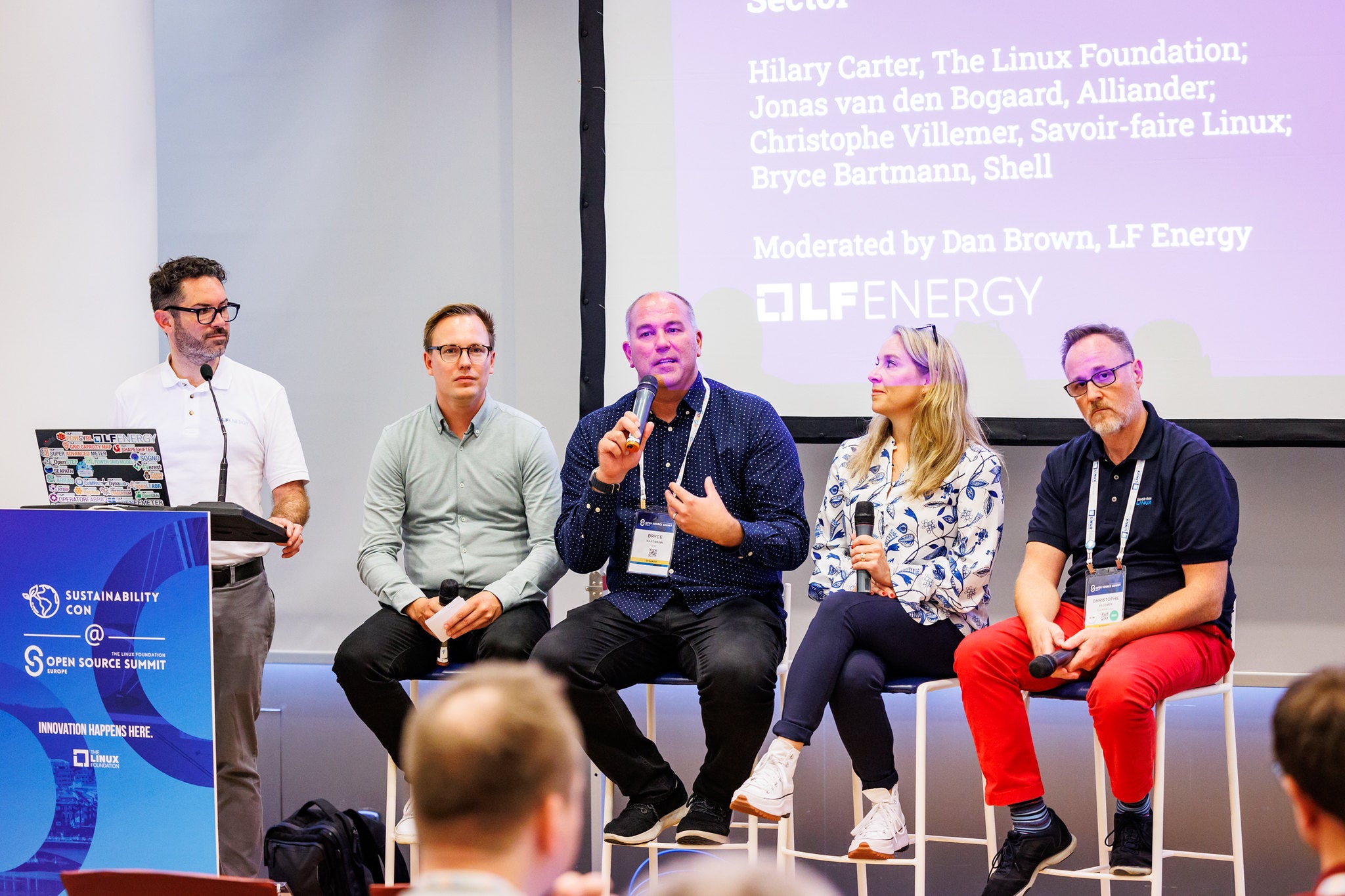Open Source Summit Europe 2023 Recap: Transforming the Power Systems Sector: The Impact of Open Source Collaboration
In a panel discussion at Open Source Summit Europe 2023, industry experts shed light on how open source collaboration is revolutionizing the power systems sector. Moderated by Dan Brown from LF Energy, the panel featured a diverse group of experts: Hilary Carter from The Linux Foundation, Jonas van den Bogaard from Alliander, Christophe Villemer from Savoir-faire Linux, and Bryce Bartmann from Shell. The conversation delved into the challenges facing the energy industry today, the role of open source in overcoming these hurdles, and the real-world impact of collaborative projects. Here are the key takeaways from the discussion:
The Energy Industry’s Technological Challenge
The panelists unanimously agreed that one of the biggest challenges confronting the energy industry is the need to adapt to a rapidly changing energy landscape. While we are transitioning to new energy sources, the industry still relies on century-old infrastructure. This transition encompasses not only technological challenges but also organizational transformations. The urgency to decarbonize and modernize the energy sector is evident.
Distribution System Operators (DSOs) Embrace Open Source
Jonas van den Bogaard, representing Alliander, a Dutch DSO, explained the importance of DSOs engaging with open source. Open source initiatives play a crucial role in shaping Alliander’s digital strategy and objectives. For DSOs, open source offers opportunities for innovation and addressing complex challenges like congestion management in the energy grid.
Multivendor Approach and Collaboration
Christophe Villemer, from Savoir-faire Linux, emphasized the significance of a multivendor approach, which open source inherently supports. Collaborative projects like RTDIP (Real-Time Data Ingestion Platform) and SEAPATH exemplify how various industry players come together to develop open source solutions. Collaboration fosters innovation, accelerates development, and creates robust solutions.
Shell’s Commitment to Open Source
Bryce Bartmann, representing Shell, shared the company’s commitment to open source. Shell recognizes the evolving energy mix and its shift towards electrification. The company believes that transparency, open collaboration, and providing solutions are essential to meet the growing interest in energy solutions. Shell is actively working on projects that showcase the integration of real-time data and open source.
The Role of The Linux Foundation
Hilary Carter, Senior VP of Research and Communications at The Linux Foundation, emphasized the role of LF Energy in driving open source collaboration in the energy sector. LF Energy serves as a hub for organizations to come together, share insights, and develop innovative solutions. Research and data collection play a vital role in inspiring others to join the open source journey.
Security and Open Source
In response to an audience question about security, the panel stressed that open source projects can enhance security through collaborative scrutiny. When it comes to critical infrastructure, the openness of open source can lead to robust solutions. However, constant vigilance and cross-collaboration between projects are essential.
Beyond Electrification
The panel recognized that open source initiatives should not be limited to electric energy. They discussed the potential for open source to address various energy commodities, including gas, oil, and hydrogen. Open source can serve as a catalyst for innovation in these sectors as well.
It’s evident that open source is not just a buzzword but a driving force behind innovation, adaptation, and the decarbonization of the energy sector. By embracing open source, organizations in the energy industry can work together to build a sustainable and efficient energy future.
